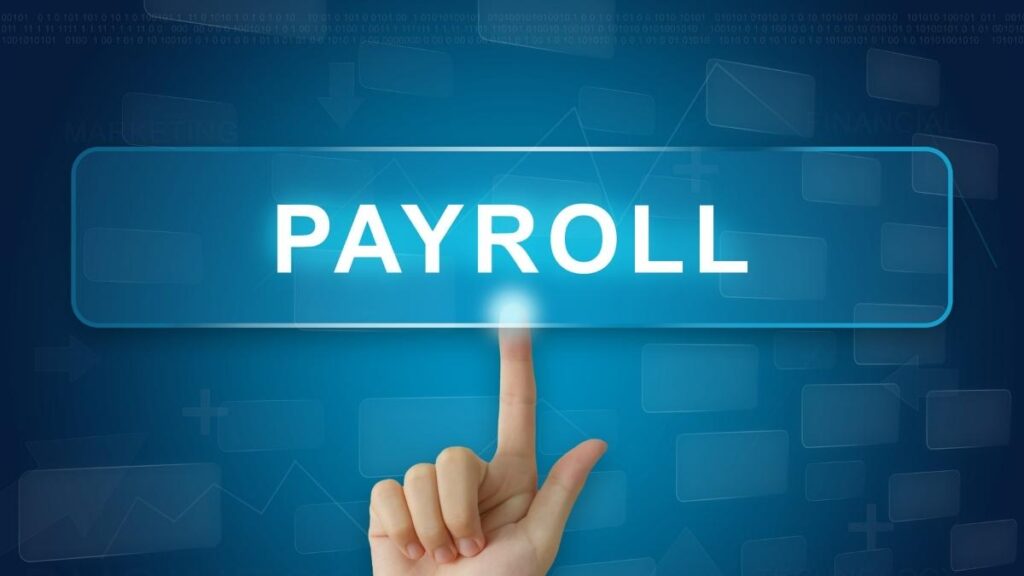
If you’re losing sleep over the question, “can a credit card debt collector take my car,” you’re not alone. Many Americans facing mounting credit card bills worry about debt collectors showing up to seize their vehicle. The good news is that credit card debt is typically unsecured, meaning your car isn’t automatically at risk like it would be with a car loan. But ignoring the problem can lead to complications.
In this guide, we’ll break down what collectors legally can and cannot do. You’ll learn the differences between secured and unsecured debt, how court judgments and liens work, and steps to protect your car. We’ll also cover when credit card debt and car seizure might intersect through a judgment lien on a car. By the end, you’ll feel more empowered to handle debt collection calls or lawsuits without panic.
Can a Credit Card Debt Collector Take My Car?
Credit card debt collectors can’t just show up and tow your car away. That’s because credit card debt is unsecured, and repossession is usually reserved for secured loans. But there are scenarios where your vehicle could become vulnerable, especially if a lawsuit is involved. Let’s dive into the details.
Credit card debt is unsecured, so cars are not collateral
Unsecured debt, like credit card balances or medical bills, doesn’t tie directly to any specific asset. When you take out a credit card, you don’t pledge your car or home as collateral. This means debt collectors can’t repossess your vehicle right away if you fall behind on payments. They lack the legal right to seize property without going through the courts first.
In contrast, secured debts—such as auto loans or mortgages—allow lenders to take back the collateral if you default. For credit card debt, collectors must rely on other methods, like phone calls, letters, or eventually suing you. This protects you from immediate unsecured debt car repossession, giving you time to negotiate or seek help.
However, collectors can be persistent. They might threaten actions they can’t legally take, but under the Fair Debt Collection Practices Act, they can’t harass you or make false claims. If you’re dealing with aggressive tactics, document everything and consider reporting them.
When repossession is possible only after a court judgment
Repossession for credit card debt isn’t direct, but it can happen indirectly after a court judgment. If a collector sues you and wins, they get a judgment—a court order saying you owe the money. At that point, they become a judgment creditor with more power to collect.
With a judgment, they might place a lien on your property, including your car in some states. This doesn’t mean instant seizure, but it could lead to it if they enforce the lien through a levy. Actual car seizure is rare because it’s costly for creditors—they have to pay for towing, storage, and auctioning the vehicle. Plus, many states protect vehicles through exemptions, which we’ll cover later.
The key takeaway? Don’t ignore a lawsuit summons. Responding gives you a chance to defend yourself or settle, preventing a default judgment that fast-tracks these risks.
When Could a Car Be Taken for Credit Card Debt?
While direct repossession isn’t an option, certain legal steps can put your car at risk. This usually involves a credit card debt lawsuit leading to a car lien or seizure. Understanding the timeline helps you act early.
Lawsuits and winning a civil judgment
Debt collectors often sue when other collection efforts fail. They’ll file a lawsuit in civil court, typically for amounts over a few thousand dollars. You’ll receive a summons and complaint, giving you about 20-30 days to respond.
If you don’t answer, the court may issue a default judgment against you. With this, the creditor can pursue aggressive collection, like wage garnishment or property liens. For credit card collectors and property seizure, a judgment is the gateway. Without it, they can’t touch your assets.
Winning the lawsuit isn’t automatic for them—they must prove you owe the debt. You might challenge it if the debt is old (beyond the statute of limitations, usually 3-6 years) or if there’s an error. Hiring a lawyer or using free legal aid can help.
Judgment liens on vehicles and state exemptions
Once they have a judgment, creditors can file a judgment lien on your vehicle. This attaches the debt to your car, making it harder to sell or refinance until paid. But state exemptions often shield your car from full seizure.
Exemptions are laws protecting essential property. Most states exempt a certain amount of equity in your vehicle—say, $5,000 to $10,000 or more, depending on where you live. Equity is your car’s value minus any loan. If your equity is under the exemption limit, the creditor can’t take it. For example, Texas allows one vehicle per licensed driver, with no value cap in some cases.
Check your state’s laws, as exemptions vary. In low-exemption states, a valuable car might be at risk if equity exceeds the limit.
What Is a Judgment Lien on a Vehicle?
A judgment lien on a car turns your unsecured credit card debt into something secured against your vehicle. It’s a legal claim that can complicate your life, even if seizure doesn’t happen.
How a lien is filed
After winning a judgment, the creditor files paperwork with your state’s department of motor vehicles or secretary of state to “perfect” the lien. This records the lien on your car’s title, alerting anyone checking it—like a buyer or lender—that there’s a claim.
The process takes time, and not all creditors bother, especially for small debts. Liens last 5-10 years, depending on the state, and can be renewed. Until then, the debt hangs over your car.
What happens if you try to sell or refinance the car
A lien blocks a clean title transfer. If you sell, the buyer might back out, or you’ll have to pay off the lien first. Refinancing? Lenders won’t approve until the lien is cleared, as it reduces the car’s value to them.
In rare cases, if the creditor enforces the lien, they could ask the sheriff to seize and auction the car. You’d get any exempt equity back, but losing your transportation could be devastating.
How to Protect Your Car from Debt Collectors
Worried about debt collector taking vehicle? Take proactive steps to safeguard your assets. Here’s how:
- Respond to lawsuits promptly: File an answer to the court summons. This prevents a default judgment and gives you leverage to negotiate.
- Negotiate a payment plan or settlement: Contact the collector to work out affordable terms. They often accept less than the full amount to avoid court costs.
- Claim state exemption laws: If a lien or levy is threatened, file a claim of exemption with the court. This proves your car qualifies for protection under state rules.
- Consult a lawyer or credit counselor: Free resources like legal aid societies or nonprofit counselors can review your case. They might spot defenses or help with debt management.
- Consider bankruptcy if needed: Filing can halt collections and discharge unsecured debts, potentially avoiding liens altogether.
Acting early is key—don’t wait until a lien is filed.
Pros and Cons of Settling vs Ignoring a Credit Card Lawsuit
Facing a lawsuit? Weigh your options carefully.
Settling the Lawsuit:
- Pros:
- Avoids a judgment on your record, which hurts credit for up to 7 years.
- Often reduces the debt amount—creditors may accept 50-70% of the balance.
- Stops further legal fees and stress.
- Cons:
- Requires upfront or structured payments you might not afford.
- Settlement could still impact your credit if reported as “settled for less.”
- No guarantee the collector won’t pursue more later if terms aren’t clear.
Ignoring the Lawsuit:
- Pros:
- No immediate action needed, buying short-term time.
- If the debt is invalid or time-barred, it might go away (though rare).
- Cons:
- Leads to default judgment, enabling liens, garnishments, or seizures.
- Damages credit severely and adds court costs to your debt.
- Limits your ability to negotiate or defend yourself.
Settling is usually smarter, but get advice tailored to your situation.
FAQ Section
Q: Can a credit card company repossess my car directly?
A: No, credit card companies can’t repossess your car directly because the debt is unsecured. They need a court judgment first to pursue any action against your vehicle.
Q: What happens if I don’t respond to a debt lawsuit?
A: Ignoring a lawsuit often results in a default judgment. This gives the creditor power to garnish wages, freeze bank accounts, or place liens on property like your car.
Q: How long does a lien stay on a vehicle?
A: Judgment liens typically last 5-10 years, varying by state, and can often be renewed. Paying the debt removes it sooner.
Q: Can filing bankruptcy stop car seizure?
A: Yes, bankruptcy can stop collections, including liens or seizures, through an automatic stay. It may also discharge the debt or let you keep your car under exemptions.
Conclusion
In summary, can a credit card debt collector take my car? Not easily or directly, since credit card debt is unsecured and doesn’t allow for immediate repossession. However, ignoring collection efforts or lawsuits can escalate to a judgment lien on your car, potentially leading to seizure if exemptions don’t protect it.
The best defense is knowledge and action. Understand your rights, respond to legal notices, and explore options like settlements or bankruptcy before things worsen. If you’re receiving calls about unpaid bills, reach out to a professional for personalized advice. Protecting your vehicle—and your peace of mind—starts with staying informed and proactive.

Emma Rose is a U.S.-based personal finance writer and a regular contributor at Cardix.us. She focuses on topics like credit cards, credit scores, and everyday money management. Emma’s writing makes complex financial concepts simple and practical, helping readers make smarter credit and spending decisions with confidence.


